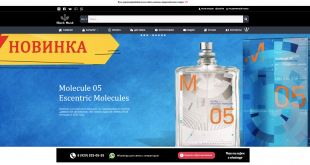
First, bots only know how to moderate chat and to conduct quiz, then they evolved into voice assistants, and now have become the perfect companions and personal stylists. Some retailers are already successfully integrated into your business
Bots are programs designed to automate business processes. Among them are the personal assistants, bots, promoters, bots from technical support, chat-bots and the mass of varieties soulless mechanical companions, ready at any moment to help you solve any problem. Chat bots are used for information interaction with large user groups: they make easier the communication between the client and supplier of goods, carrying out the exchange of messages in either voice mode or as a standardized online conversation.
Program bot was trying to do in the middle of the twentieth century. In the 1960-ies Professor Joseph Weizenbaum from mit wrote ELIZA program — it became the prototype of the modern bots. The world’s first electronic assistant in the mid-90s, was invented by American programmer Michael Maldng. The program was called Julie, and she knew how to read and analyze written text, Michael. With the proliferation of the Internet in the beginning of “zero” bots began to actively use in the network quizzes, for moderating the forums and censoring chat.
Then bots turned into a personal voice assistants: Apple Siri appeared, Microsoft — Cortana. In 2014, Amazon has integrated assistant Alexa in a smart column Amazon Echo, and in 2016, Google introduced Google Assistant.
In 2017, the number of daily users WhatsApp has exceeded billion mark. New, rapidly growing channel of communication attracted the attention of marketers, businessmen and investors — it turned out that their audience is migrating from social networks and email and instant messaging. This is an ideal consultant to work around the clock, 365 days a year, observing the most stringent standards of service and not succumbing to the change of weather or mood. I only had to teach their clients to use chat-bots.
The bots are in almost every big seller of goods or services — from grocery retailers to banks and mobile operators. Bots answer questions, help with selection of merchandise, initiate feedback from operators, collect feedback, and ultimately improve service. The most common example is a voice menu of any mobile operator. In 2018, the Agency Mindshare UK published a study of Humanity In The Machine: according to statistics, customer loyalty bots is evaluated as “above average” — 63% of people do not mind dealing with artificial intelligence, if it will help them to effectively solve their problem. But before exceptional confidence far: 79% of respondents want to be sure that every bot is watching man and that he can intervene in the dialogue between the user and artificial intelligence.
The problem is that even the companies themselves don’t always trust the bots that affect their business. Deeper in the structure of the company implemented the bot, the more information he has, the more his conversion. There are technologies that allow the bot to hold the customer from the initial request and product selection to payment and shipping. For this the bot needs to have access to sales statistics, individual customer profile, its history of acquisitions and personal data. Many companies are afraid to give the bot this freedom of action because they are afraid of information leakage. However, the example of market leaders H&M, Spring, or Sephora — shows that the game is worth the candle: these giants the market for a long time and very successfully use bots to help people buyers.
One of the largest beauty retailers, Sephora is French, one of the first active use of chat bots. In 2016, the company introduced consumers to a multifunctional bot which helped customers choose products, answered questions and gave tips on skin care, and helped with the selection of makeup and told how to apply. In fact the bot was just two: Sephora Reservation Assistant helped book the selected goods in the most convenient store network, and Sephora Color Match, powered by Facebook Messenger are able to pick up cosmetics for the right buyer color. Innovation brought Sephora 11% increase in the number of “reserved” products, and also led to the increase of average check in online to $50.
At the same time launched its chat bot H&M. the Virtual Manager to find out from the client what the garment of interest to him now, asking about style and color preferences, and then offered a number of the most suitable options and were redirected to the appropriate catalog page. The first version of the program was not perfect: the bot does not know how to fix errors and the flexibility to change the recommendation, but for a short time, artificial intelligence has become a respected expert in the field of fashion and style. Today the bot collects all the statistics on online purchases at H&M and gives recommendations solely based on preferences, recommendations and reviews of real customers.
Another Ambassador boat traffic was the company Spring whose bot works on the platform of Facebook Messenger. Spring Bot is an online Concierge service for consumers top brands of haute-couture such as Balenciaga, Givenchy, Lanvin. Bot with each client in person. It starts with the refined greeting, then a virtual assistant is interested in what product is needed today, in what price range people are willing to consider offers. The buyer can immediately make a purchase, the bot will accept the payment, send an e-check and discuss terms of delivery.
Statistics of the development of chat-bots to today looks at least life-affirming: they are the most promising channel of communication in the online environment. Assessment by Grand View Research, 20018 in the world market of bots is estimated at $20-210 million and growing. According to the forecasts of researchers, by 2025, its volume will exceed $1 billion In Russia the situation is similar: as of 2018, the market volume of bots-intelligent assistants, according to the Just Al is around 524 million rubles, but by 2023 it will rise to 33 billion rubles.
© 2019, paradox. All rights reserved.





